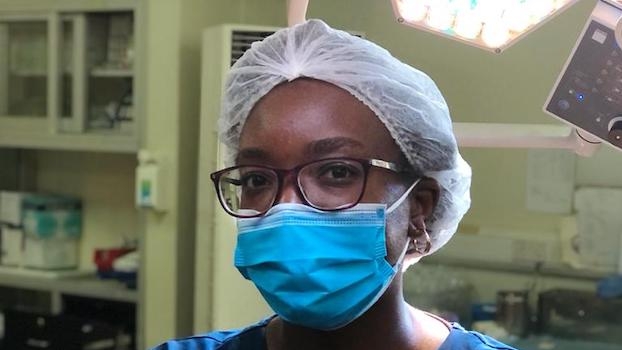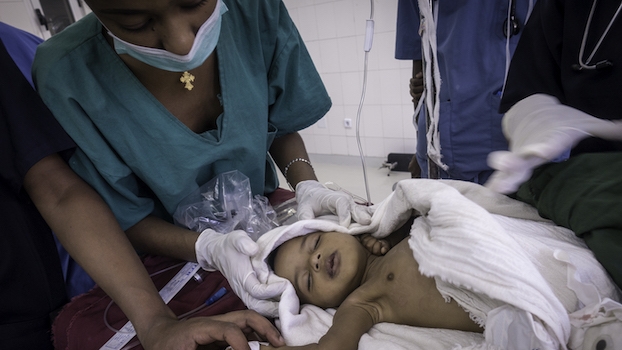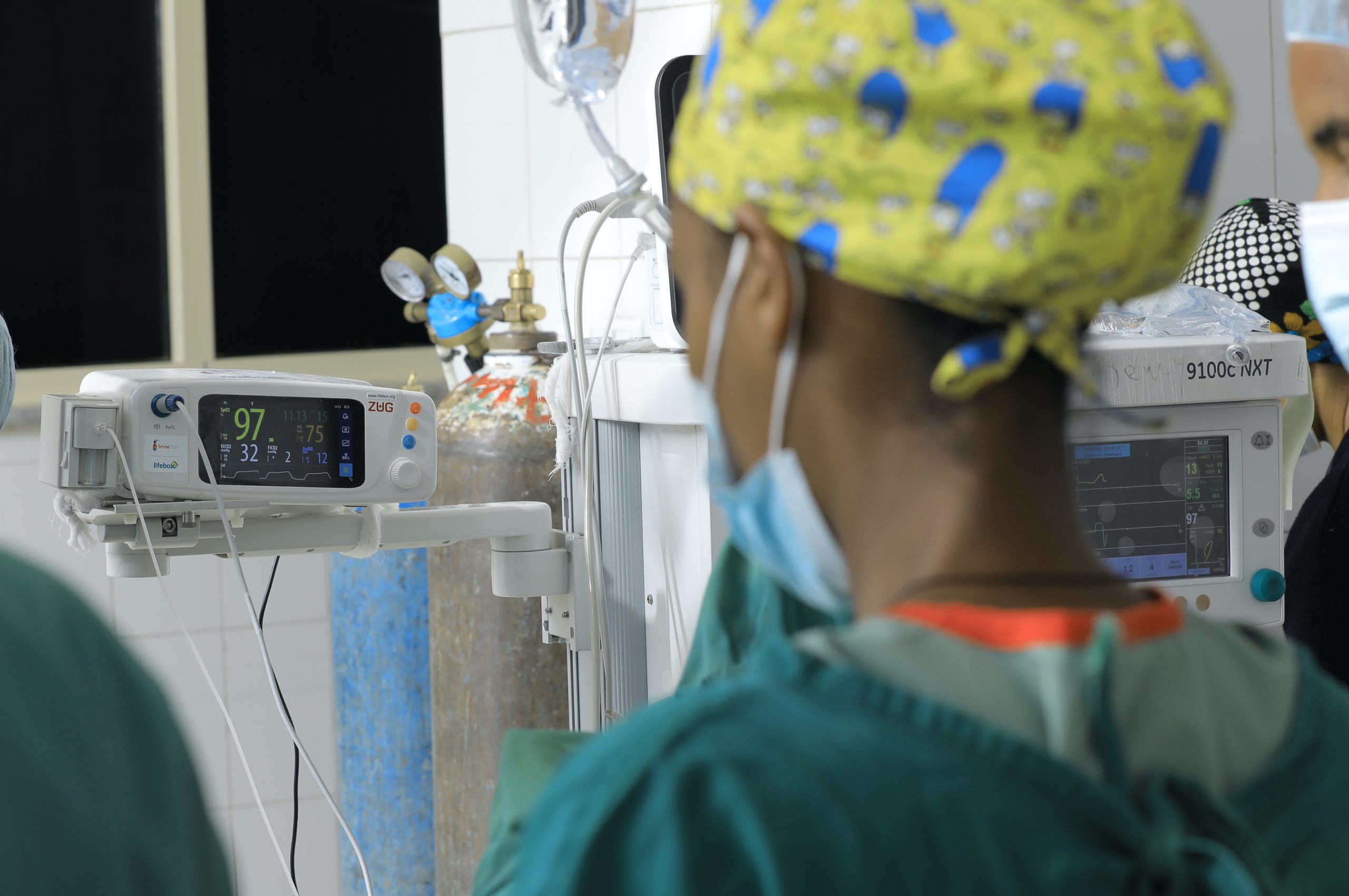
Online Smile Train-Lifebox Capnography Course
A free online course on the fundamentals of capnography
Find Lifebox resources for perioperative professionals - including publications, our online learning courses, and Lifebox workshop materials

A free online course on the fundamentals of capnography
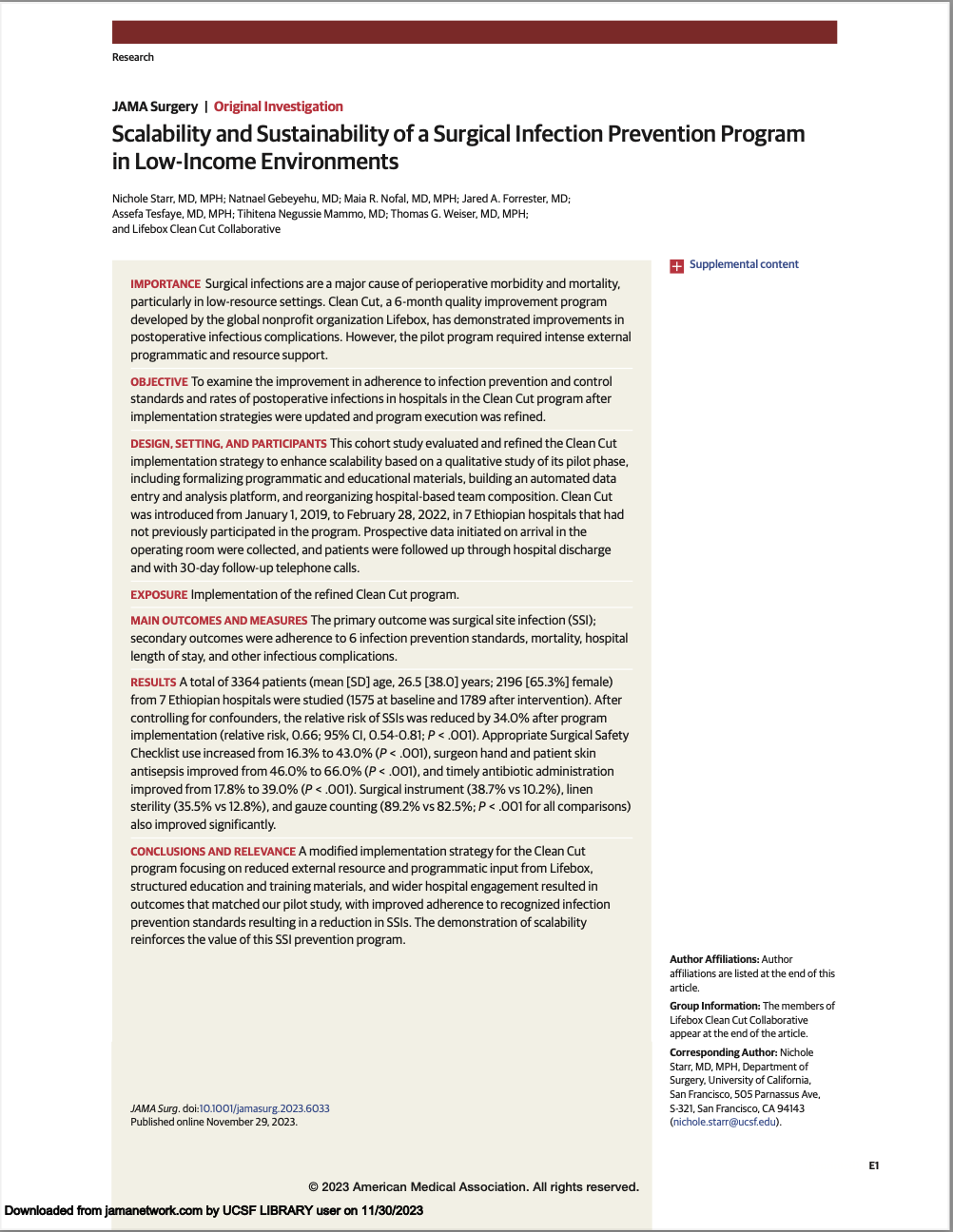
Clean Cut results, published in JAMA Surgery, achieve a 34% relative risk reduction of surgical site infection
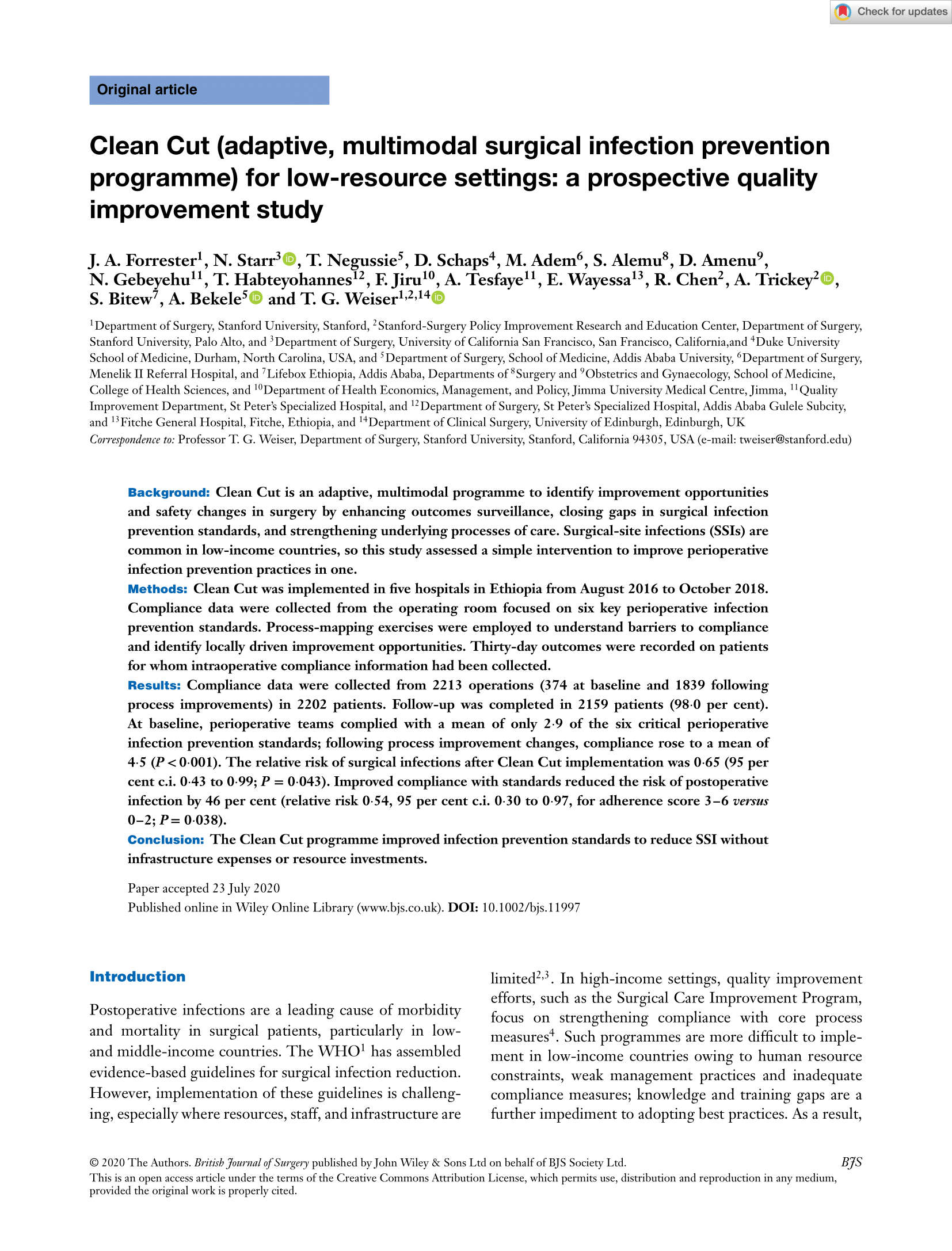
This study showed that Lifebox's Clean Cut program improved infection prevention standards to reduce SSI without infrastructure expenses or resource investments.
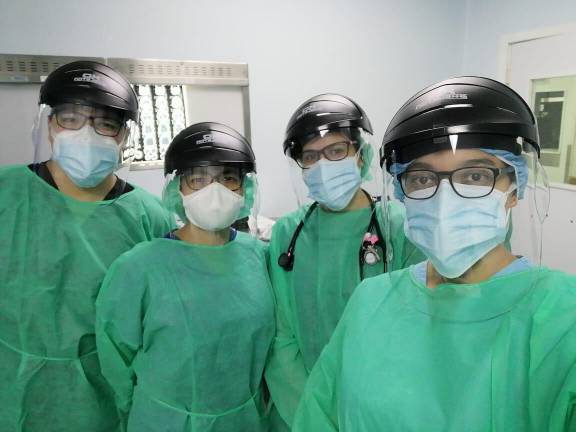
This interactive Personal Protective Equipment: Self-learning Module covers minimizing infection risk through the safe reprocessing of Personal Protective Equipment (PPE)
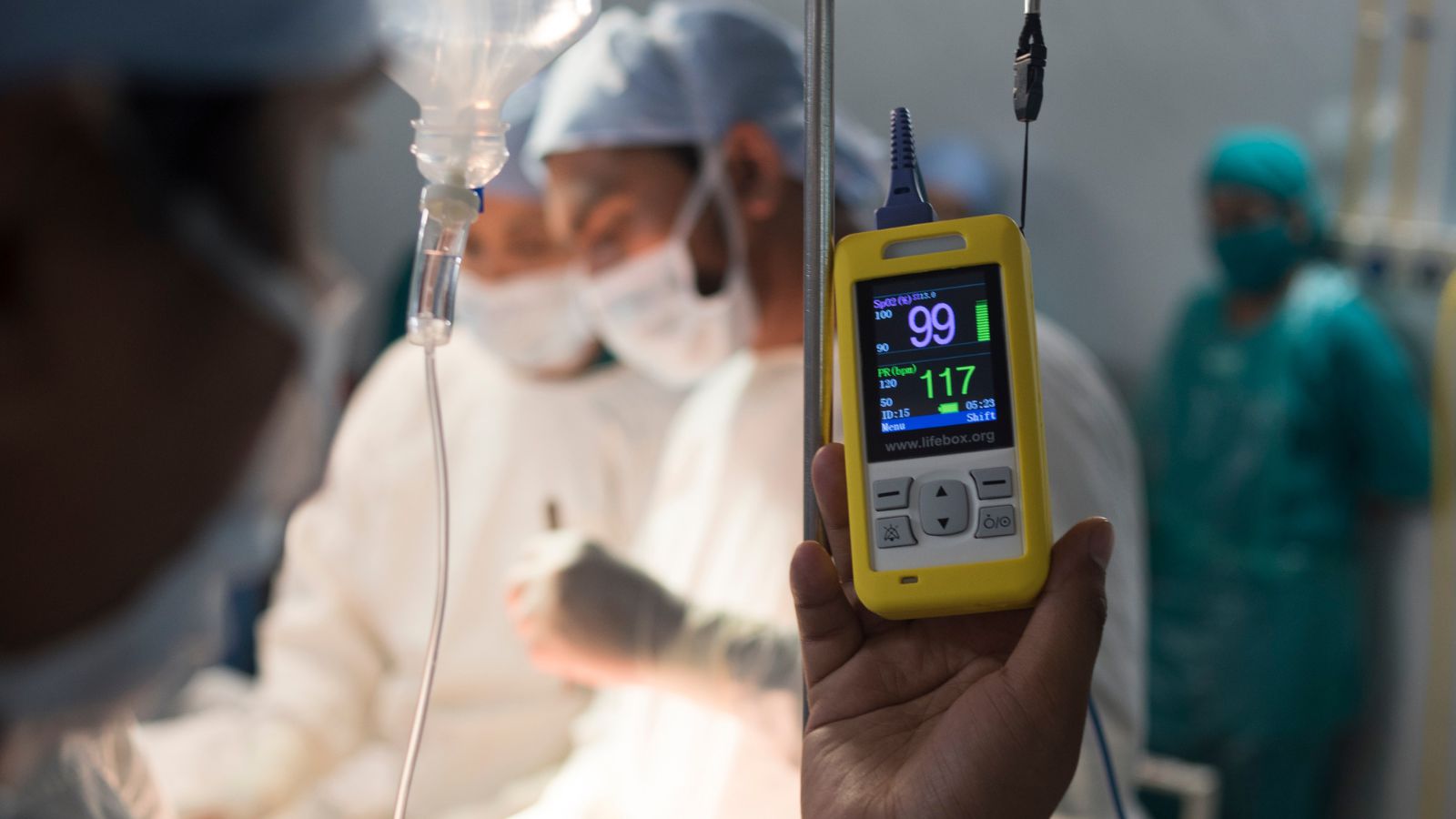
El objetivo de este curso es que sirva como recurso para aquellos trabajadores sanitarios que deseen saber más sobre la oximetría de pulso y sobre cómo esta puede usarse para mejorar la atención al paciente





Il est conçu comme une ressource pour les professionnels de la santé qui souhaitent en savoir plus sur l'oxymétrie de pouls et la façon dont cette technique peut être utilisée pour améliorer les soins au patient.





An interactive online course for healthcare providers to learn more about pulse oximetry and how it can be used to improve patient care





This online Lifebox course is for healthcare providers who wish to learn more about pulse oximetry and how it can be used to improve care for patients with SARI, including COVID-19.
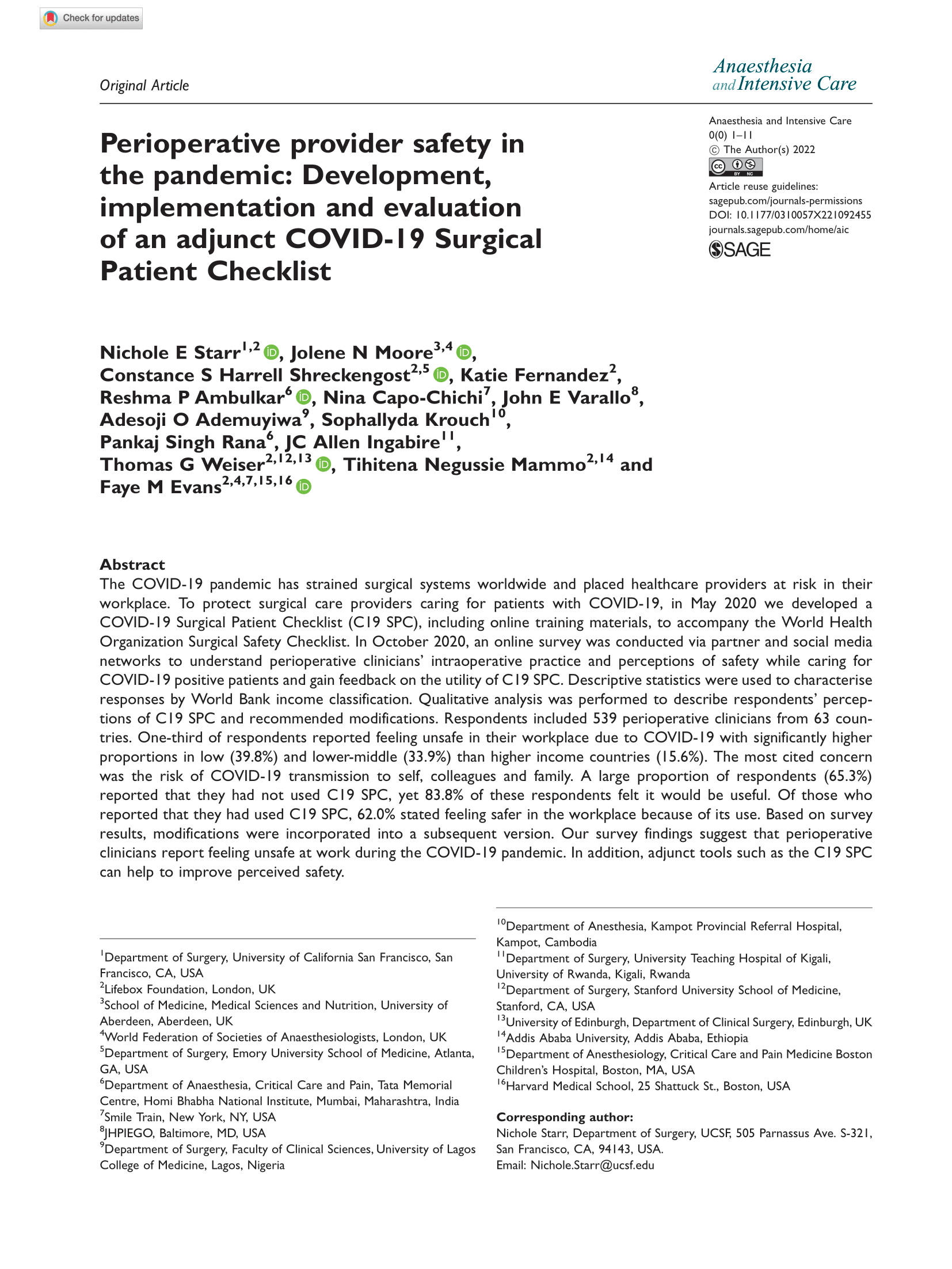

Our survey findings suggest that perioperative clinicians report feeling unsafe at work during the COVID-19 pandemic. In addition, adjunct tools such as the COVID-19 Surgical Patient Checklist can help to improve perceived safety.
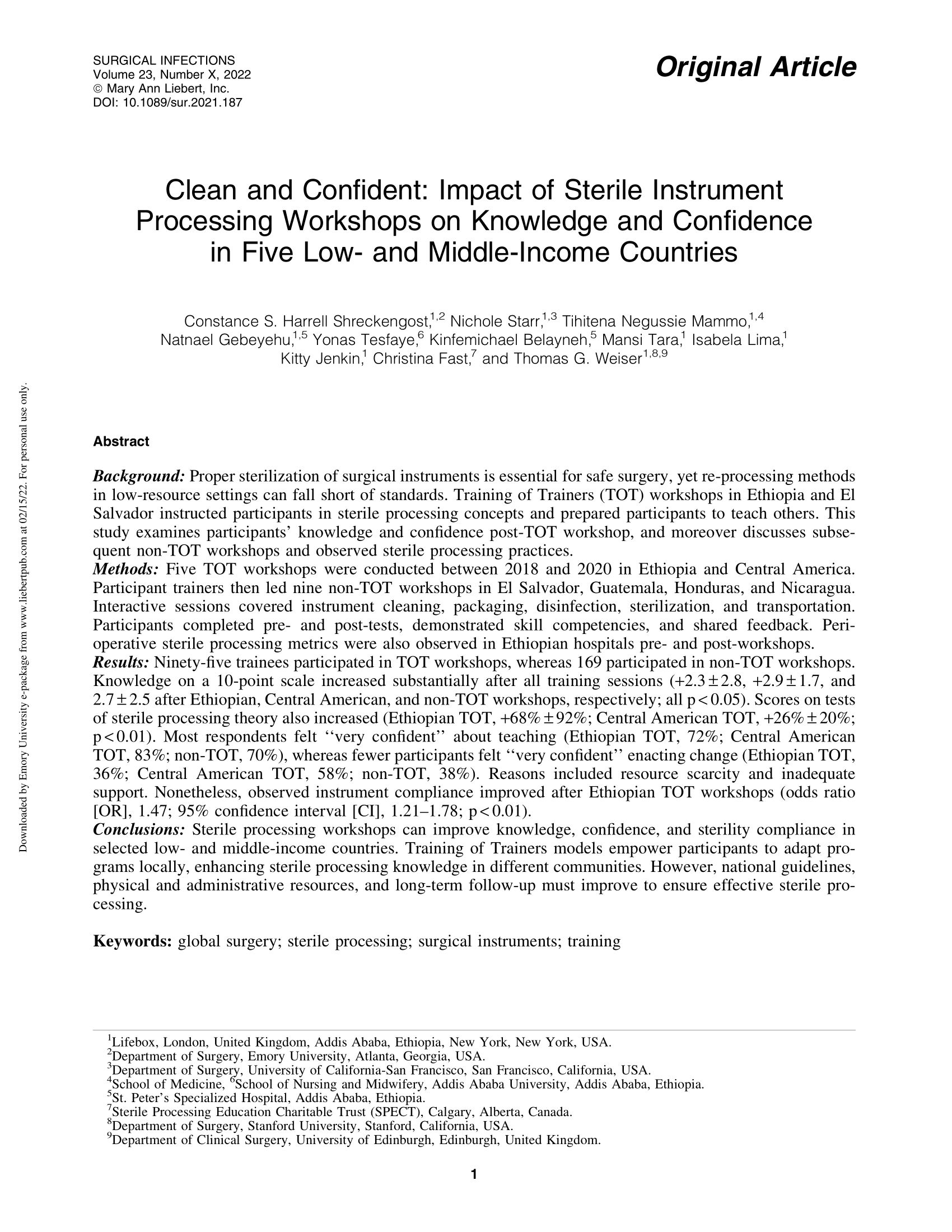

This study examines participants' knowledge and confidence post-TOT workshop, and moreover discusses subsequent non-Training of Trainers (TOT) workshops and observed sterile processing practices.
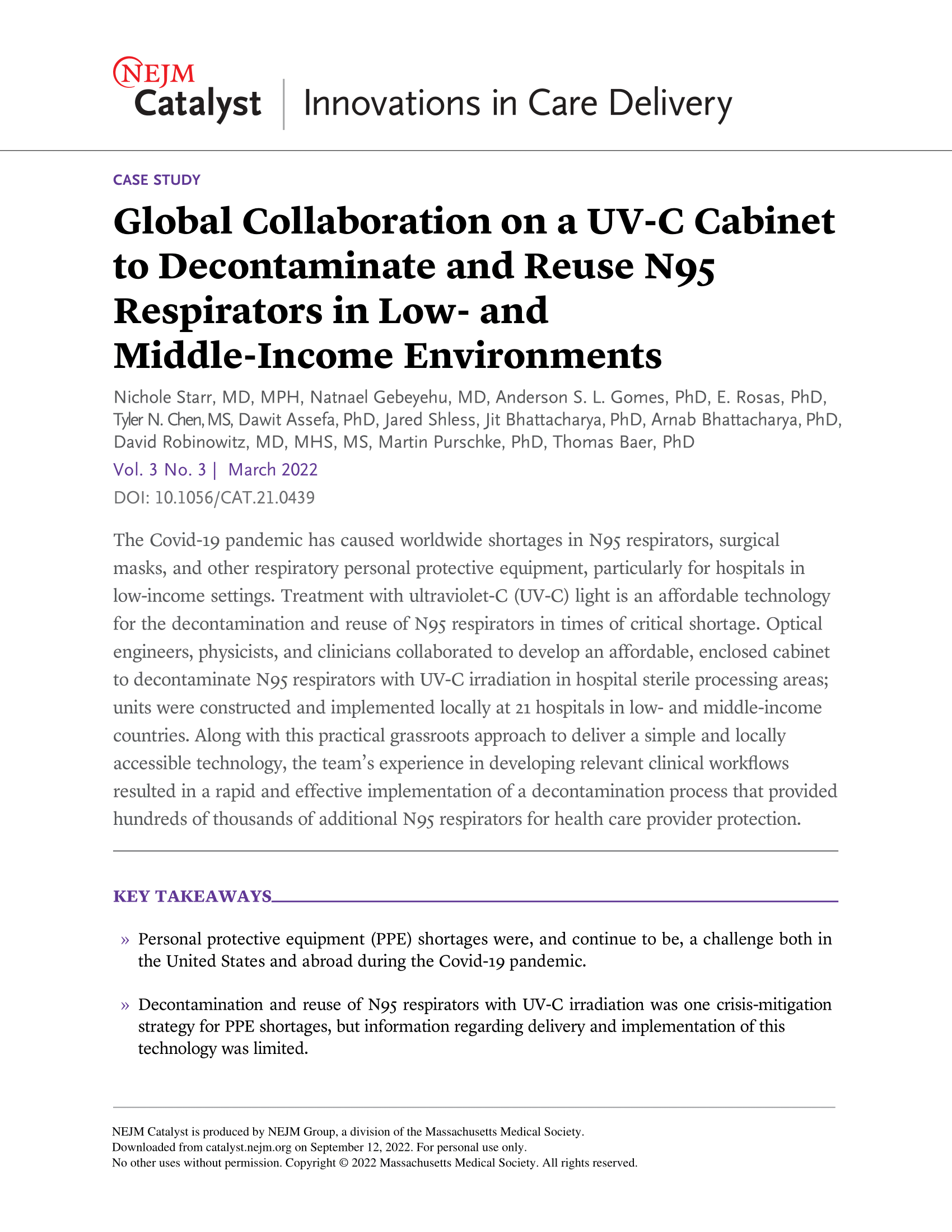

Working in multidisciplinary, interprofessional teams can leverage varied skill sets to enhance innovation and implementation in crisis situations.
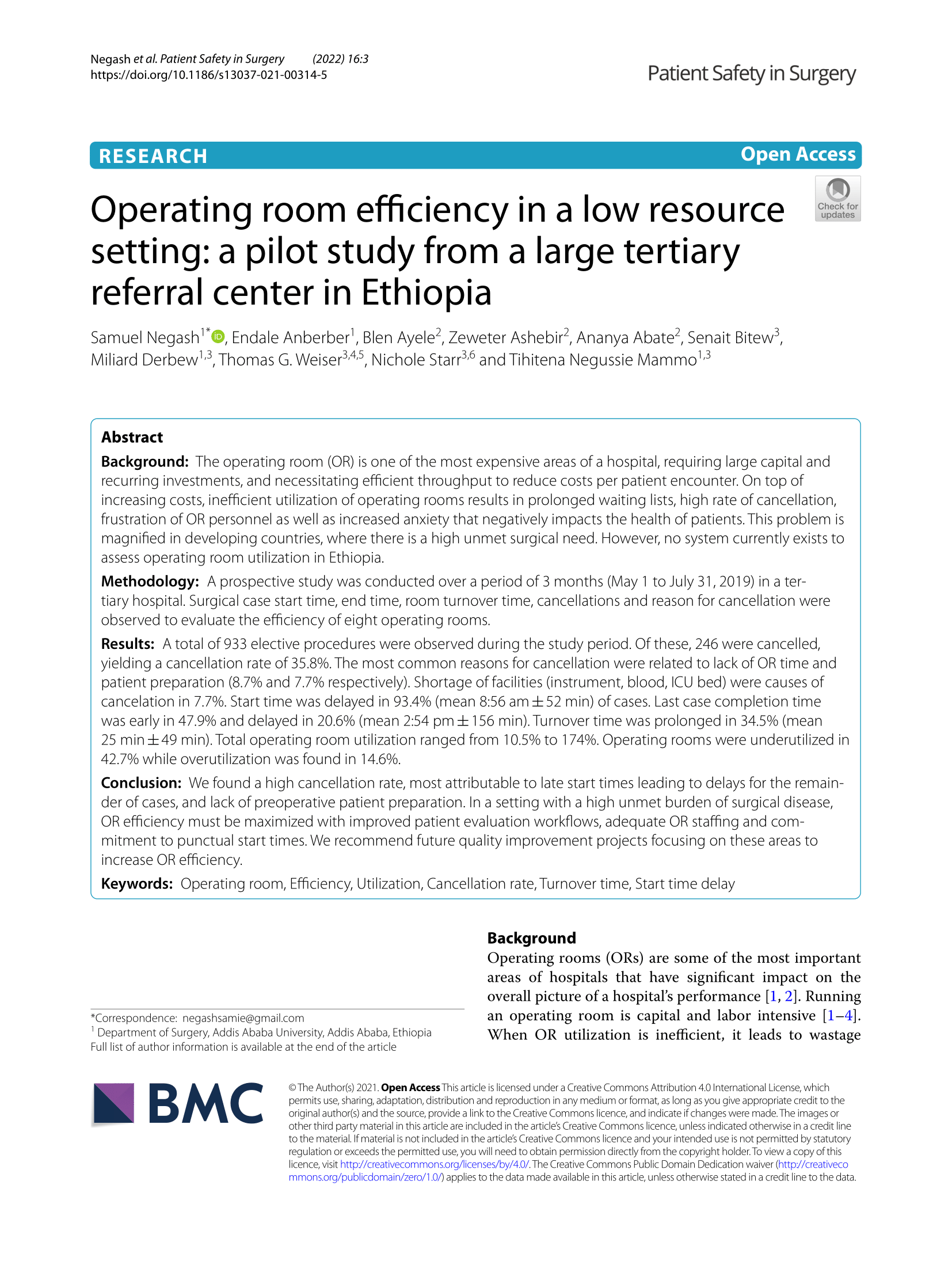

This study found a high cancellation rate, most attributable to late start times leading to delays for the remainder of cases, and lack of preoperative patient preparation.
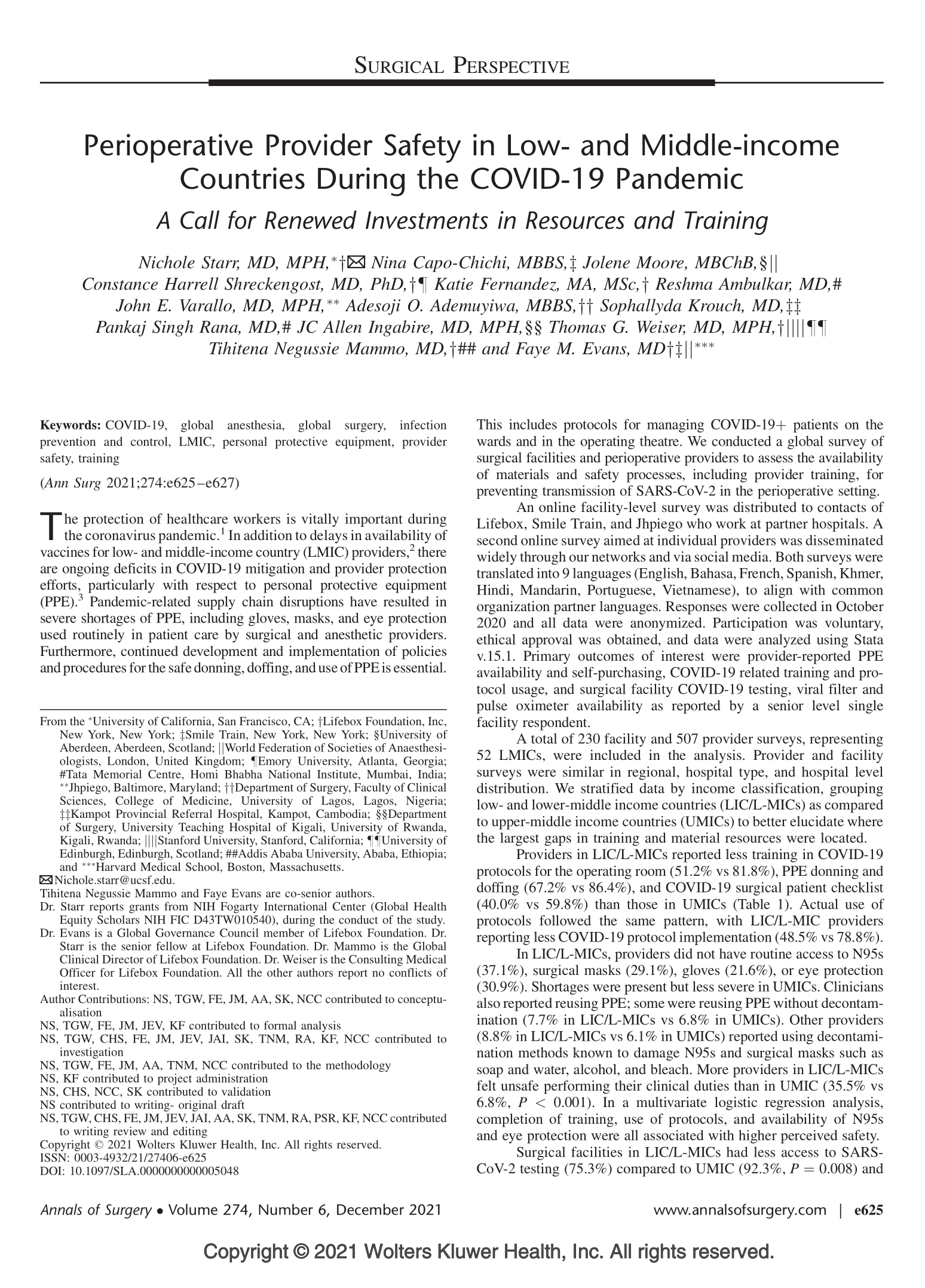

The ongoing, severe shortage of protective equipment and training gaps should be immediately remediated to prevent the loss of healthcare workers in lower-income environments.
